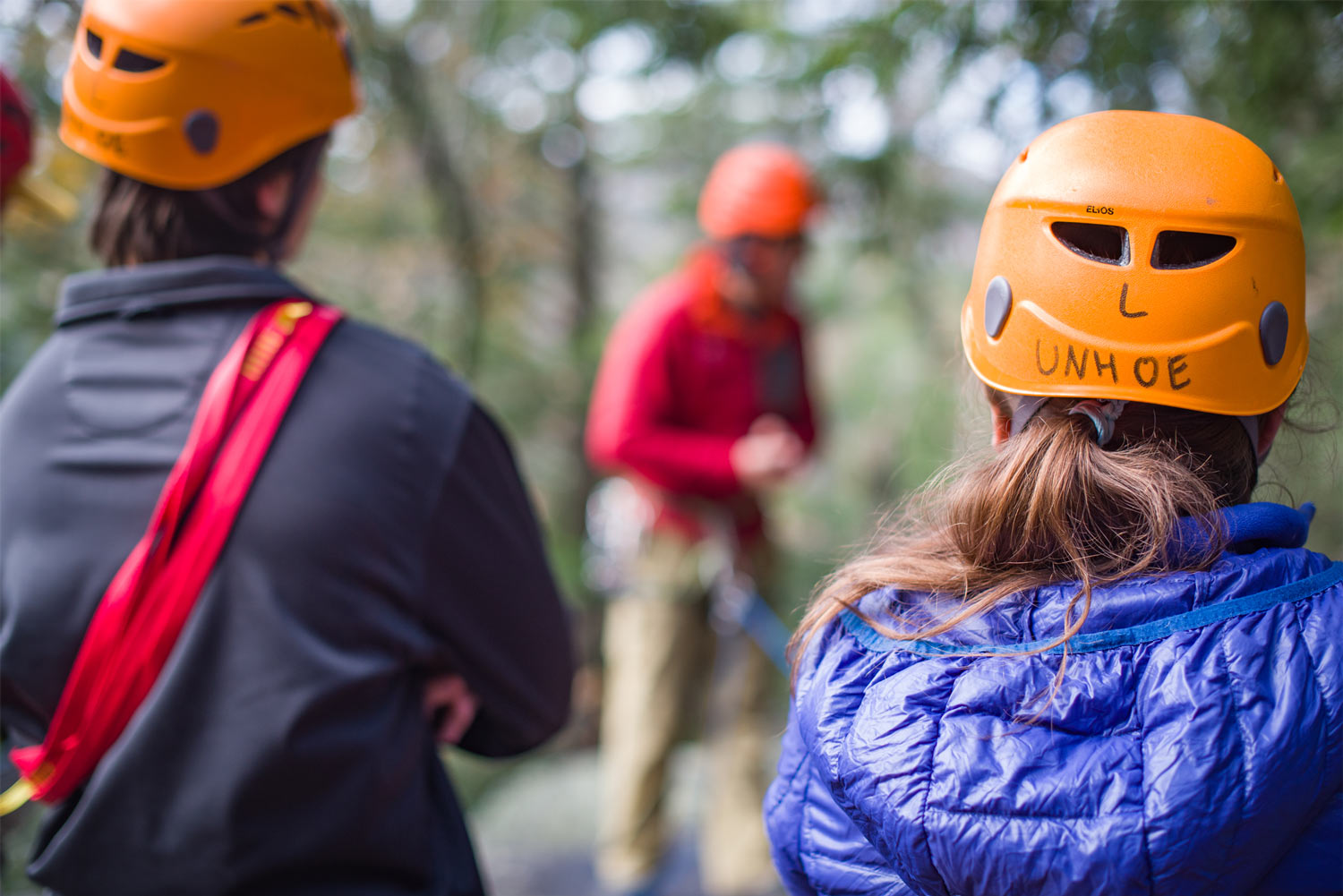
etting outside can do more for teens than keep them physically fit. For some, it can be a life-changing — or even lifesaving — intervention. Now, with grants totaling $2.97 million, UNH’s Outdoor Behavioral Healthcare Center will soon be able to quantify the therapeutic benefits of outdoor behavioral health (OBH), or wilderness therapy, a prescriptive treatment for teens struggling with depression, anxiety and substance use disorders, through a first-of-its-kind randomized study.
“Mental health and substance abuse issues in adolescents have become major societal problems, forcing parents and health providers to look for innovative treatment options that may better suit some teens,” says Michael Gass, professor of outdoor education and director of the Outdoor Behavioral Healthcare Center. “Our hope with this study is to uncover definitive answers about the benefits of wilderness therapy from a behavioral, social and cost point of view.”
The burgeoning field of OBH provides therapeutic intervention for adolescents, delivered by licensed mental health professionals who use wilderness experiences such as hiking, backcountry travel and climbing in combination with group living, group therapy and one-on-one counseling sessions. While an appealing and effective mode of therapy for many families, most programs are not covered by insurance, creating an enormous cost burden and high barriers to access. By quantifying the efficacy of OBH with a randomized control study — something typically required by the insurance industry for any type of therapy — Gass aims to lay the groundwork that will lead more insurers to cover the treatment and broaden its accessibility.
Gass and his team will compare the treatment and outcomes for several different groups of youths: those dealing with anxiety, depression or substance abuse. The researchers will randomize at least one hundred adolescents, with half getting treatment by participating in wilderness therapy and the other half receiving cognitive behavioral therapy in their own community —the standard non-pharmaceutical treatment. There will be routine monitoring every two weeks and researchers will take into consideration other factors, such as socioeconomics, to see what role these may play in the treatment process.
UNH researchers joining Gass in this work include Anita Tucker, professor of social work; Tarkington Newman, assistant professor of social work; Suzanne Graham, associate professor of education; Semra Aytur, associate producer of health management and policy; Nick Mian, assistant professor of psychology at UNH Manchester; and doctoral student Kendra Bostick ’23G.
The grants, from a collection of family foundations, will be distributed over the next three years. During that time, the team will work with eight of the leading accredited OBH centers in the United States, all of which have committed resources to this research.